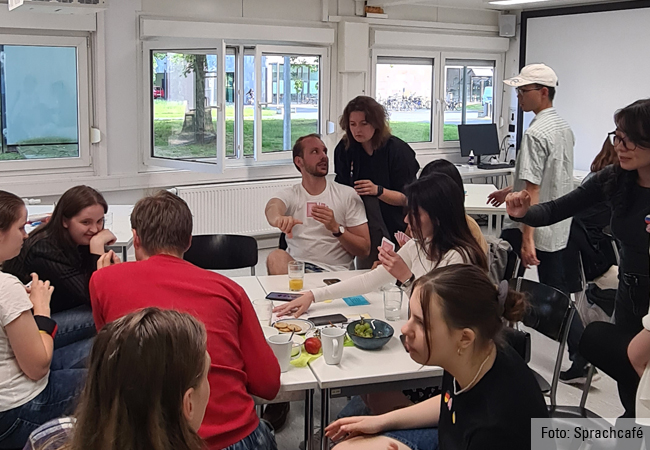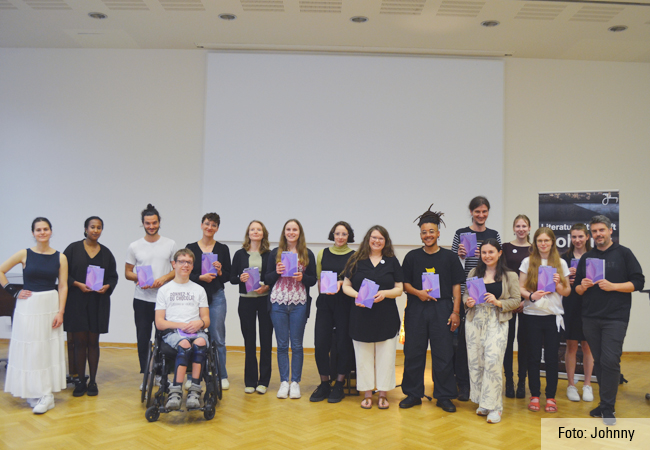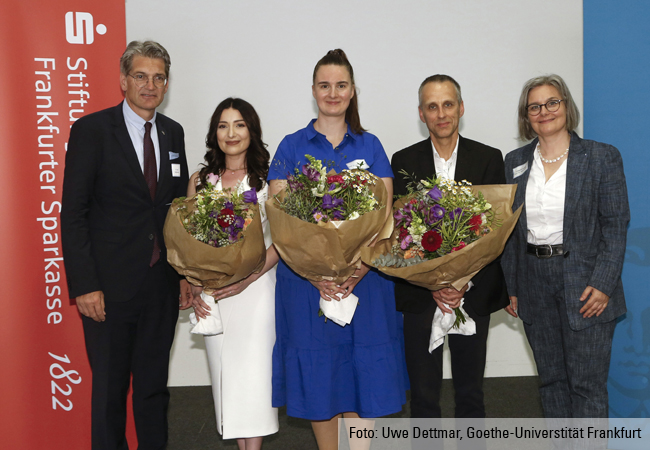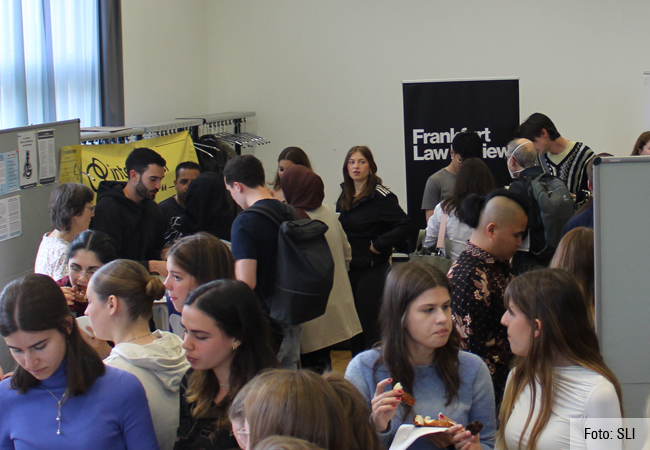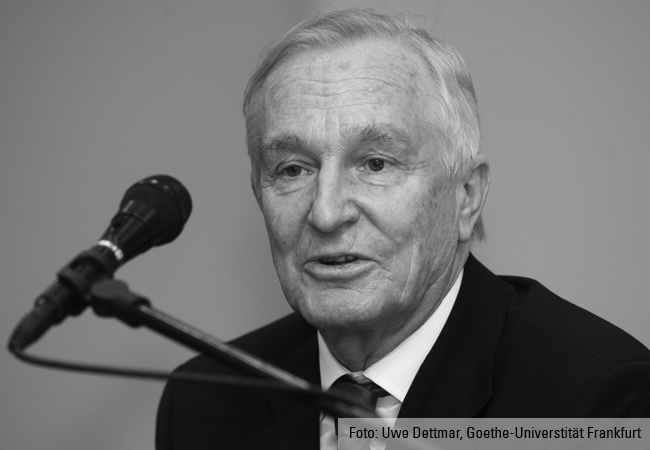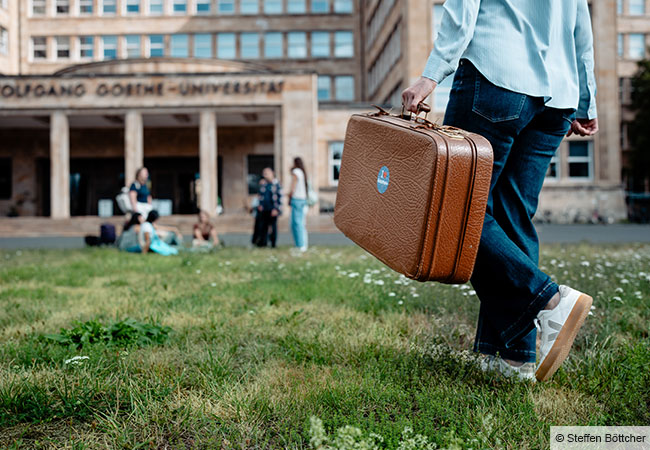At the Forschungskolleg Humanwissenschaften (FKH), Paul Lichterman, Professor of Sociology and Religion at the University of Southern California, is conducting research into white anti-racism. The Humboldt Foundation is funding his stay.
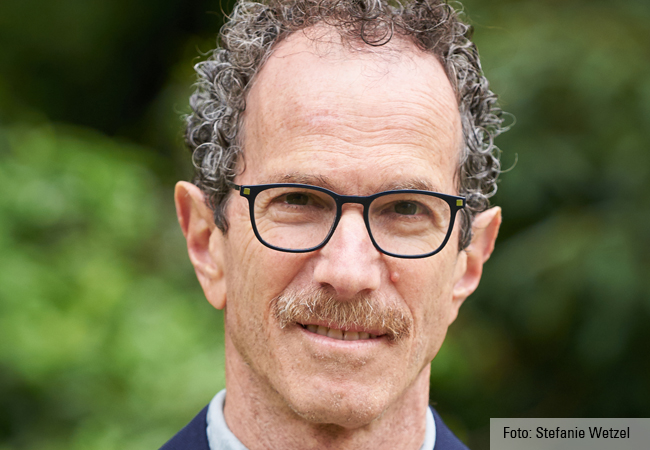
UniReport: Professor Lichterman, by way of introduction, I would like to ask you two questions about the US presidential election campaign: In your research, you deal with a socially unequal and culturally diverse society. Will the enormous gulf between Republicans and Democrats exacerbate social problems? Is there a glimmer of hope, even if Trump wins the election?
Paul Lichterman: The gulf between Republicans and Democrats has already exacerbated many national problems. Socially marginalized Americans are hit particularly hard. The diverging political views of Democrats and Republicans often make it impossible for national legislators to tackle social inequality at all, seek compromises or expedite new legislation. This is partly because one party (Republicans) has increasingly rejected the unwritten norms of democratic governance since the 1990s. Republicans tend to view Democrats not as legitimate competitors, but politically as illegitimate enemies and culturally as anti-American mavericks. Trump’s divisive potency is the result of a longer-term erosion of commitment to democracy in the Republican Party. But he injects something else that makes it difficult to tackle social problems at the national level. Trumpian politics is not about ideas or getting to grips with problems. It is aimed at loyal “fans” and not so much at citizens who want to hear solid arguments. You can trace Trump’s political style to the traveling medicine shows typical of American popular culture in the 19th century. In these shows, fast-talking entrepreneurs sold miracle cures to rural folk whose lives were hard. While some Americans have undoubtedly become fans of the “Trump Show”, others want democratic institutions, even if that makes for a less entertaining campaign slogan. If Trump wins the presidential election in November, his anti-deliberative politics might go in an entirely authoritarian direction.
The glimmer of hope is that many Americans do not want an authoritarian government that favors the wealthy and disparages non-white, non-Christian people. During Trump’s presidency (2016-2020), many new civic groups emerged that made a stand against the president’s plans. This voter engagement has continued. If Trump wins a second term in office, he wants to restrict citizens’ right to protest. It is unclear whether other, currently uncontroversial forms of civic engagement will also become more risky.
In your study “Elusive Togetherness”, for which you have received several awards, you examined to what extent civic groups based on shared beliefs, which have long been important in America, can create broad social bonds in an unequal and diverse society. Can these groups, also in view of the current situation in the US, contribute to bridging the deep divides? And what obstacles are there?
When the state gradually shrank its responsibility for social welfare in the mid-1990s, some legislators said that voluntary organizations run by the church could do the job previously incumbent on the state much better. Is that so? In my book, I compared nine local church groups that support people on low incomes. Most of them did not manage to establish a stable social connection with these marginalized groups. The behavior and habits that characterize American civil society had not prepared most group members for working with people socialized in different ways to themselves. Their religious obligations did not help either. There is little reason to assume that local, voluntary organizations run by the church can cultivate new and binding relations between politically opposed groups. In fact, some (not all) theologically conservative Evangelical Protestant churches also follow the “Make America Great Again” doctrine, which treats cultural or political opponents with suspicion.
When you started working with Professor Sutterlüty and other colleagues at Goethe University Frankfurt and the FKH, you dealt with religion in society and politics. How would you describe the roles that religious groups play in society?
Can religion offer contemporary society a standpoint from which to criticize grotesque social inequality and its destructive impact on social order? This question, which is rarely asked in sociology circles in the US, came to my attention through one of Professor Sutterlüty’s research projects. Before I came to Frankfurt in 2019, I had examined how socially committed people – both religious and non-religious individuals – work together on the problem of homelessness. The US system is more reliant on these non-state actors, whether religious or secular, when it comes to combating homelessness than are most European societies. As an ethnographer, I was interested in this issue at the level of intervention. How would participants mutually understand and respect each other when some justify their stance on homelessness from a religious perspective and others from a non-religious one? During my first stay at the FKH five years ago, I wrote an essay in which I showed that claims to validity inevitably say something about the social identity and standing of the people who stake them. If we leave out this aspect of civic debate, we cannot understand why deliberation in a diverse, “post-secular” society often break down even among people with the same ideas. The argument is still relevant: More and more secular Americans associate “religion” in general with right-wing Christian nationalism, and that reputation can make some of the audience angry, regardless of what a religious proponent says.
Sutterlüty and I are now planning to write together, and coorganize a conference that will be based on our current research projects. It concerns the question of how quite ordinary people put up resistance to what they feel is a suppressive social order. We are both dealing with the question of how to find a balance between interpretation and social criticism in the social science texts we write. We will be discussing this with colleagues from Goethe University Frankfurt and other universities at the conference, which will take place at the FKH in fall 2025 and be funded from my Humboldt Research Award.
In a new book, you deal with white anti-racism. You consider anti-racist activity as a “moral project” and you examine collective action against systemic racism. Can you explain how these two aspects of anti-racism fit together? How do they manifest themselves in everyday life in the US?
Racism is still present in the US in a powerful, though often subtle way. In the workplace, in the classroom, in the courtroom, and in everyday relationships, Americans still perceive people according to the conventional attitudes that often privilege the white population. There are lots of places where people who want to fight systemic racism can start. The starting point for many white American anti-racists is themselves. They are learning that fighting racism calls for emotionally demanding work to dismantle the racism “within us” so that we do not unconsciously perpetuate it. These anti-racists are engaging in what I call a personal “moral project”. They are trying to acknowledge their white privilege and act in an anti-racist way. They are learning to correlate “being white” with competitiveness and hunger for power and striving to understand and appreciate the lifeworlds of marginalized non-white people. To cultivate this new identity, they join reading groups to learn something about the history of indigenous peoples or the history of policing policies that disproportionally penalize Black people in the US. Others join discussion groups to explore racism in their own lives in a pseudo-therapeutic setting. Some white anti-racists see this work as their contribution to a less racist society.
Still others take part in collective actions in which they express this personal morality. They participate in public gatherings to criticize racist police practices. They support anti-racist candidates for city councils. It might seem surprising that they don’t talk much about civil rights or institutional reforms although they certainly endorse them. They understand their own anti-racism as part of a broader vision of cultural change in which society is based more on moral standards of caring for others and less on punishment. They talk less about personal change than the participants in the reading and discussion groups, but their collective efforts, too, are a kind of moral project.
It would be wrong to interpret the positions of white anti-racists as a question of strategic mobilization rather than morals. Rather, anti-racists organize campaigns that are aligned with their morals. They learn to work harmoniously alongside non-white activist leaders without “occupying too much space”. They try to avoid treating other activists as “workers” for the movement, and they consider that cultivating caring, non-instrumental relationships is strategically important for forming a movement against systemic racism. This moralized kind of mobilization comes with both virtues and limits. My book compares these activists with another group fighting for race-related civil rights and more conventional institutional reforms. They are confronted with a different set of compromises.
In your opinion, what is the difference between the discussions in the US and Germany about the causes of racism and overcoming it?
Some Americans still assume that racism stems from purely personal prejudices, but a growing number see systemic, structural forces in society at work. Most white critics of systemic racism consider it to be a type of institutionalized violence. I don’t think this American understanding is very different from the German one, especially in university circles. It’s conspicuous that since the police killing of a Black American man, George Floyd, in 2020, journalists and public officials refer much more frequently to the far-reaching implications of racial inequality for healthcare or schooling – or for who wins movie awards. While many see the institutional dimension, perhaps more Americans than Germans insist that reducing systemic racism calls for sustained personal efforts beyond legislative reforms. Americans are trying to do this by reading bestsellers, learning new things at high school or university or in “diversity training” for corporate and university staff across the whole country. Conservative politicians are targeting efforts to dismantle systemic racism, by banning books and restricting curricula in schools. Regardless of whether these counter-campaigns are successful or not, it is improbable that Americans’ moral attitude toward racism will change in the near future.
Interview: Dirk Frank


